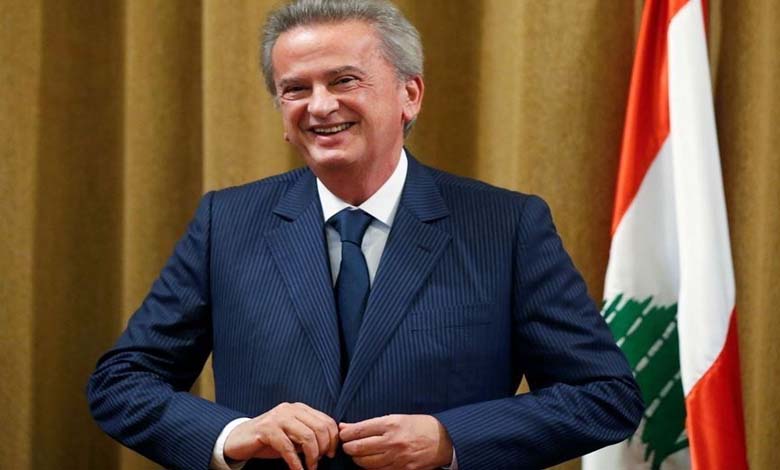Salameh freezes his file indefinitely by manipulating the Lebanese jdiciary
The results of the lawsuit filed by the former Governor of the Central Bank of Lebanon against the judges not only hinder the Lebanese judiciary but also impede cooperation between Beirut and the European judiciary in related cases.

The former Governor of the Central Bank of Lebanon, Riad Salameh, managed to obstruct his case within the Lebanese judiciary by filing a countersuit against the Chief President of the Appeals Court in Beirut. This occurred after Lebanon obtained new documents from the Swiss judiciary, which currently cannot be investigated due to the freezing of the case for an extended period.
Salameh filed a lawsuit before the General Assembly of the Court of Cassation against the Chief President of the Appeals Court in Beirut, Judge Habeib Rizkallah, for what he called a “serious error” committed by the latter in appointing a prosecutorial body to consider the appeal submitted by the Public Prosecution at the Ministry of Justice. This decision was made by the former Investigating Judge in Beirut, Charbel Abou Samra, who left Salameh under investigation without issuing an arrest warrant.
The lawsuit implies that Judge Rizkallah is no longer capable of appointing any new prosecutorial body to decide on the appeal. In other words, Salameh succeeded in manipulating the Lebanese judiciary by resorting to convoluted legal tactics and managed to prevent the case from reaching the current Investigating Judge, Bilal Halaoui.
An informed judicial source mentioned that “the case will remain frozen for a long time, considering that Rizkallah is the authority that appoints or commissions a judicial body to determine whether Abou Samra’s decision is legal or not.” The source pointed out that the results of these lawsuits not only disrupt the Lebanese judiciary but also hinder cooperation between Lebanon and the European judiciary in related cases.
The source revealed that “the Discrimination Public Prosecutor’s Office recently received additional documents from the Swiss judiciary regarding the accounts of Riad Salameh and his associates in Swiss banks, in response to the request of the Lebanese judiciary. However, the Investigating Judge will not be able to investigate them because the file is with the prosecutorial body.”
Observers question whether the Lebanese judiciary, which heavily relies on political support for appointments, is seriously investigating allegations related to a figure of Salameh‘s stature, given the political support he enjoys from top officials.
The Lebanese judiciary does not deny the existence of difficulties. In a general comment in November 2022, the highest judge in Lebanon stated that political interference in judicial work has led to a chaotic situation that requires a “revolution in approaches” to resolve.
Salameh was a cornerstone in the financial system that served the private interests of the major factions in Lebanon after the civil war of 1975-1990. Many observers believe that these factions fear that his downfall could have repercussions for them.
The leader of the “Change” movement, Elias Maouad, questioned both the “Free Patriotic Movement” and the former President Michel Aoun about the reasons that led them to extend the term of the former Governor of the Central Bank of Lebanon, Riad Salameh, while refusing to keep the Army Commander, Joseph Aoun, in his position.
A report published by the French website “Mediapart” revealed some aspects of the plan prepared by Salameh‘s team, written by hand and seized by French authorities from his assistant Marianne Hawi.
The plan outlined clear objectives, including “changing the French judge, hindering Lebanese and French investigations, and then preventing them from reaching results that do not serve Salameh and his associates.”
The report mentioned the name of the former minister Wiam Wahhab, indicating that the close associate of Governor Riad Salameh, Marianne Hawi, informed the French judiciary about Wahhab’s contact with her while she was in France, providing comments and the “roadmap.” However, Hawi “documented all her observations and the amount of money, but the plan was not executed.”
The report also revealed information about the circumstances of the French authorities’ arrest of the Lebanese banker Marwan Khair al-Din, who owns the “Resources” bank and was one of the collaborators with the directives of the Central Bank Governor regarding banking issues. He was interrogated, and his personal phone and computer were seized to examine his correspondence before his temporary release, with the condition of appearing again before the French judiciary.
Former minister Wiam Wahhab denied through the “AX” platform that he had any knowledge of Marianne Hawi, stating, “neither closely nor remotely, and he has not seen her in his life.” He added, “The source of the news is the WhatsApp of Minister Marwan Khair al-Din, and the truth is that Minister Wahhab told him that he heard in Paris that Riad Salameh‘s lawyers are not strong enough, and Wahhab has lawyers more important than them. So Marwan’s response was that Salameh prefers to keep his lawyers.”
Salameh‘s pursuit in France came after a long process that began with a complaint filed by a group of affected Lebanese against “a group of villains and anyone implicated, whether as an actor or instigator, in the financial collapse in Lebanon and the loss of deposits.”
Swiss investigations began to examine whether Salameh and his brother Raja embezzled over $300 million from the Central Bank of Lebanon between 2002 and 2015.
Since then, European countries including France, Germany, Luxembourg, and Liechtenstein have initiated their own investigations into whether tens of millions of dollars suspected of being embezzled from the Central Bank of Lebanon have been laundered in Europe.
In March 2022, the European Union’s judicial cooperation agency froze around €120 million (130 million dollars) of Lebanese assets in France, Germany, Luxembourg, Monaco, and Belgium related to a case in which prosecutors in Munich said Salameh is suspected. France issued an arrest warrant on May 16 after Salameh did not attend a hearing in Paris. He said he would appeal the warrant. Interpol issued a red notice for Salameh in the same week.












